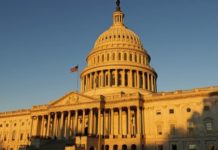
As the country and businesses started to reopen and COVID-19 lockdowns and restrictions began to be lifted, there was a sense of relief and hope that was filling the air.
However, along with that sense of relief and hope, there is now a much warranted degree of caution driven by both the significant uncertainty about the breadth and pace of economic recovery and the concurrent concern about the extreme spikes in new COVID-19 cases in regions of the country, following some of the very first liftings of those lockdowns and restrictions.
Business owners and operators are a resilient breed.
They help drive a strong and, it is hoped, resurgent American economy. But regardless of the size of the businesses, whether large or small, or privately or publicly owned, COVID-19 has dealt a completely unexpected and severe blow from which it will take time to recover.
Sadly, there are many businesses that will not recover or survive, and many more have experienced such a devastating financial and operational blow that despite the much-needed fiscal and monetary stimulus programs enacted and employed by Congress and the Federal Reserve, they will need to make significant adjustments in the way they do business to be able to continue their operations.
While American businesses reopen, they all remain exposed to the impact of lingering and, in some cases, resurgent COVID-19 cases. As expected, they are making the adjustments needed to protect their workplaces, safeguard employees, and — in many cases — protecting customers, suppliers and visitors from the spread of the virus.
They willingly incur the expenses associated with modifying their business operating models knowing that they must take every step to keep functioning responsibly and safely under these unique and challenging conditions.
Even though businesses are taking precautions, there remains another substantial and looming concern, and different kind of “exposure.”
Recovering business operators must now consider the possibility that regardless of their very best efforts to protect their workplaces, employees, customers and visitors, they might well be exposed to liability from those who claim they contracted the virus during interaction with their businesses.
Additionally, in some cases, the exposure might also come from product liability claims, charging that products manufactured to specified standards designed to help prevent COVID-19 still resulted in exposure to the virus.
These threats of litigation are real and, sadly, cannot only destroy businesses that have already been severely weakened by sapping what little reserves they have left but will also have the effect of stalling what should be a strong and sustainable economic recovery that depends on the viability of those very businesses.
Representatives of businesses are speaking out.
Karen Kerrigan, president and CEO of the Small Business and Entrepreneurship Council, recently addressed the liability concern on behalf of her members, noting: “Small-business owners are taking every possible precaution in light of COVID-19, and spending significant resources to protect their workers and customers. Providing local businesses with protection against opportunistic litigation should be a bipartisan matter.”
Similarly, Jay Timmons, president and CEO of the National Association of Manufacturers, stated: “The federal government must protect those who have served the needs of the public during this pandemic by enacting targeted legal liability reforms that reduce uncertainty and unlock the full potential of manufacturing in America, as we move from response to recovery and American renewal.”
Congress is fully aware of the issue and understands that a sustainable recovery of the economy depends on businesses being able to operate safely and securely — and for those that do — without fear of litigation.
At a recent event sponsored by the American Council for Capital Formation, lawmakers and business representatives on both sides of the issue made it clear, however, that while this is a contentious issue, it is one that Congress should be able to address and can resolve — and they understand they must do it quickly.
Most important, American business does not seek immunity from litigation, but rather a safe harbor that protects businesses when appropriate standards of care have been met to reduce COVID-19 exposure and spread.
Let us be sure that the sense of relief and hope that is beginning to fill the air can be sustained, and is not supplanted by the sense of despair that unfounded liability claims and litigation will certainly bring.






